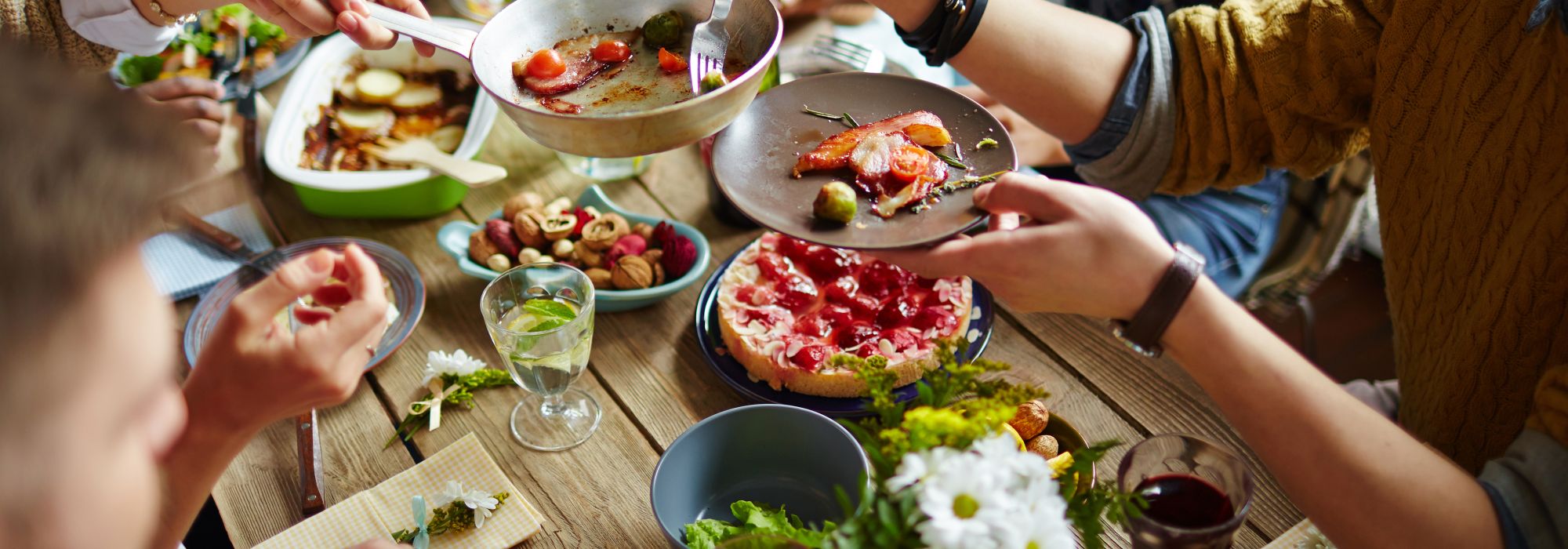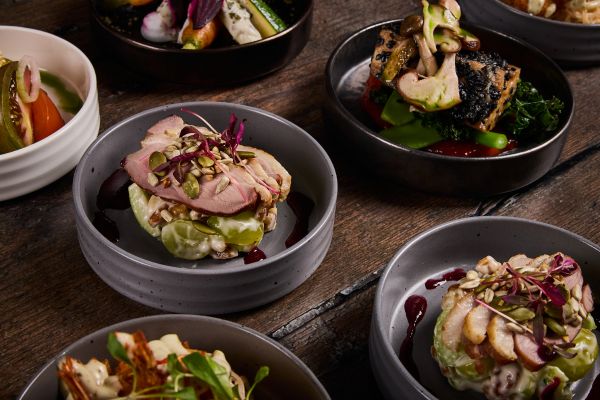“Food is our common ground, a universal experience” said the celebrated cook and author of over 30 recipe books, James Beard, and we agree. As an intrinsically social act, commensality – or the act of eating together – has long been used as a tool to forge new bonds and cement old ones. Whether your colleagues are participating in a team-building cookery class, celebrating the year gone by at a company-wide banquet, or indulging in a post-meeting drinks reception, cooking and eating together is a recipe for not only friendship but good business. It’s a delicious way of bringing your team together.
Food and bonding through the ages
![]() The history of the dining table tells a tale of inclusion and exclusion; victory and defeat. From the Romans and Greeks who saw the table as a political chessboard, to the 17th century French aristocracy for whom dining was an art form, the feast has long been an expression of power and prestige.
The history of the dining table tells a tale of inclusion and exclusion; victory and defeat. From the Romans and Greeks who saw the table as a political chessboard, to the 17th century French aristocracy for whom dining was an art form, the feast has long been an expression of power and prestige.
The 16th century Renaissance banquet offers one of the best examples of this complex political mechanism. As historian Roy Strong explains, these were meals “of the highest artifice,” where the focus was not on food but on power. The guest was simply an audience-member to the dramatic performance of the meal. Everything from the layout of the dining room to the select use of forks became an opportunity to cement a political hierarchy and show off the dazzling wealth of the hosts. The meticulous preparations prompted commentator Giacomo Colorsi to write, “the man who prepares a banquet has as much to do as he who marshals an army”. It’s enough to make the office Christmas party seem rather tame.
But of course, the history of communal eating is not all poisoned chalices and stuffed swans. Since the beginning of our history, the act of eating together has been one of nurture, friendship and love. And for modern teams, an opportunity to relax from the stresses of the office. No drama necessary.
Why does it feel good to eat together?
Everybody knows that eating together feels good. Just think about your most memorable meals – they no doubt involve as much laughter and conversation as they do good food. And now, researchers believe it can do our health a lot of good too. Studies have shown that families that eat together are healthier, benefiting from lower rates of depression and obesity, along with higher rates of literacy and self-esteem. In the context of your “work-family” this translates to a more engaged team, stronger professional relationships and staff that feel appreciated.
![]()
So why is food such a powerful tool for bonding? For researchers at the University of Chicago, it all comes down to trust. In 2017, they carried out a studyto determine whether similar food consumption facilitates a sense of closeness and trust between adults. After pairing up strangers, the researchers gave the participants either similar or different foods and assigned them a labour negotiation. Fascinatingly, the pairs that had eaten similar foods reached an agreement almost twice as quickly as the groups that ate dissimilar foods. Explaining the study, Professor Ayelet Fishbach said:"I think food is powerful because it is something that we put into our bodies and we need to trust it in order to do that.”
Thankfully, a post-conference canapé reception doesn’t entail the same amount of pomp and jaw-dropping expense as a Renaissance banquet (but with an experienced team of event-planners at your disposal, Prestige Venues & Events could certainly put this together for you too...). Regardless of the type of event you’re hosting, communal dining is undoubtedly an important tool for forging long-lasting bonds. Aside from being great for our emotional and even physical health, preparing shared meals and eating together is quite frankly good fun – just another reason why food should take centre stage at your business event.

